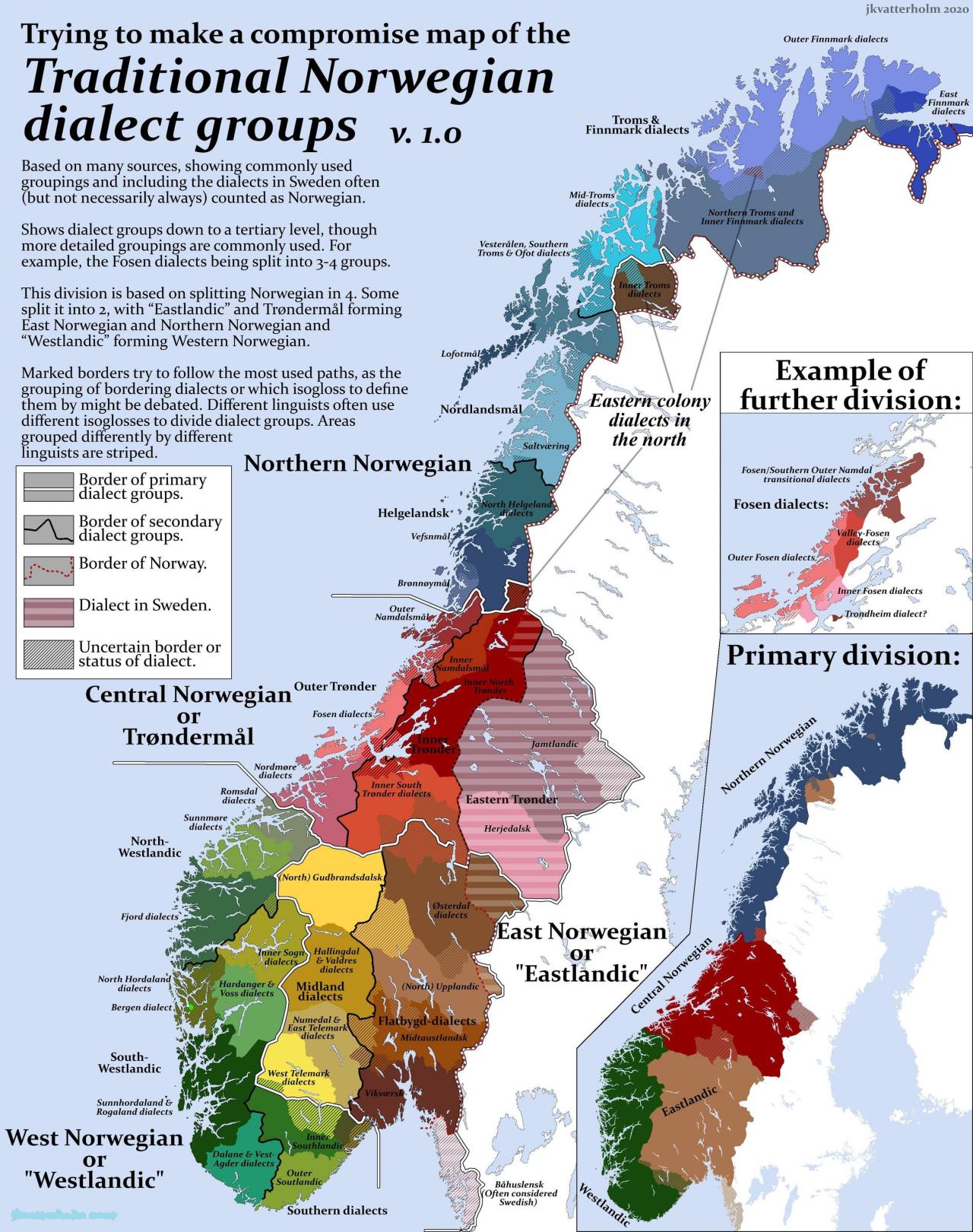Those are surprisingly large zones, I would have thought it would be much more fractured. Is it just a rough generalisation, or would someone in Mauritania speak similar to someone in Algeria?
Even this map of Norway doesn’t really represent all the dialects in our tiny country.

Norwegians seem lo love linguistic about as much as Finns do. Because of this enthusiasm, people have been making extremely detailed dialect maps for decades. My guess is that these two countries are the exception and the rest of the world focuses on funding other types of research.
That’s possible, but that doesn’t really answer my question which was if the dialect is the same/similar for each group internally on the map, or just a very rough generalisation. The map covers some incredible distances so it would surprise me if they managed to keep a consistent language across it all that space. Didn’t mean to dunk on the map if that’s how you interpreted it.
My guess is, the map of North Africa is really rough, because nobody actually put in the years of research time to produce a detailed map. Haven’t really tried looking for a better version, so if you find one, that bit of evidence can prove me wrong instantly. If that’s the case, the map we see here is a simplified version meant for internet audiences.
This is 100% amateur guesswork, but maybe the geography is part of the answer here? Norway is a bunch of extremely jagged coastline opening on to the fairly cold and empty North Sea, and most of the rest of it is equally jagged mountains, so it was probably easy for communities to be relatively isolated most of the time and therefore wind up speaking a little differently to the guys in the next fjord over. The Maghreb, on the other hand, is right on the Mediterranean, which has been one of humanity’s busiest and most travelled areas for thousands of years
I’m sure Norway has a higher density of various dialects to the factors you mentioned, but Maghreb is vastly greater in size, so you’d think there would be more than 5 dialects. It’s fascinating if there aren’t.
deleted by creator
The events that led to the conquest of northern Africa by Arabs took place what, 1000+ years ago? You can hardly argue that “Arabs are colonialists” in modern times by judging 1000+ years old historical events, in the same way you probably wouldn’t judge modern Greek people as colonialists because they speak an Indo-European language and Indo-European languages are spoken all over the continent of Europe and much beyond.




